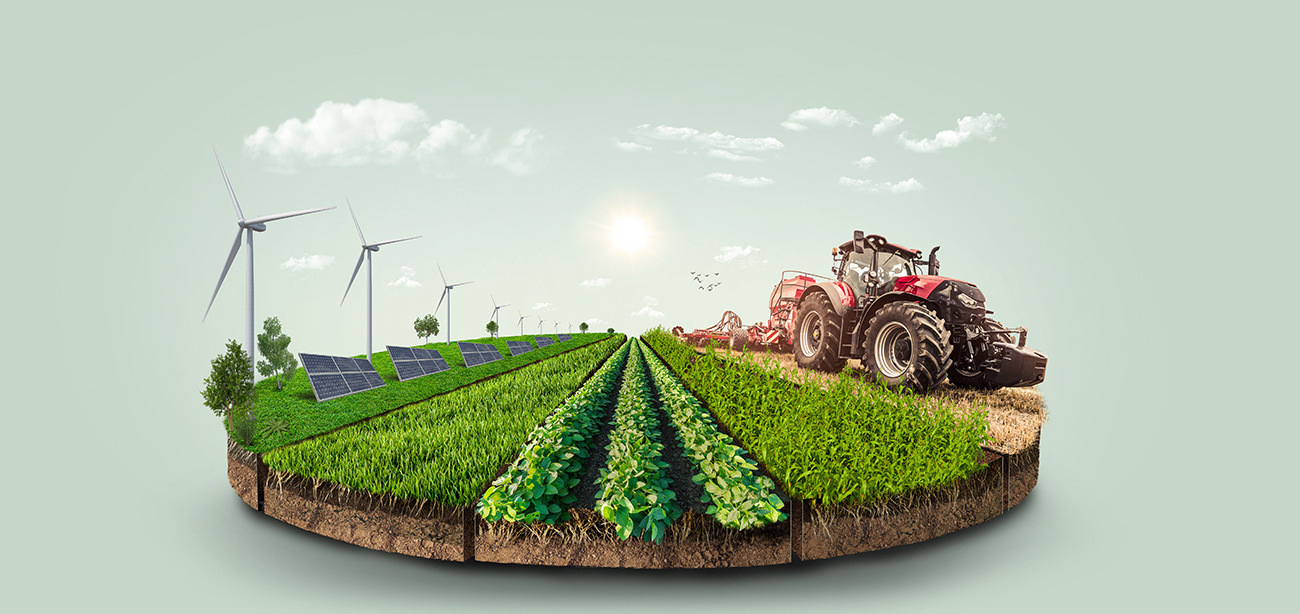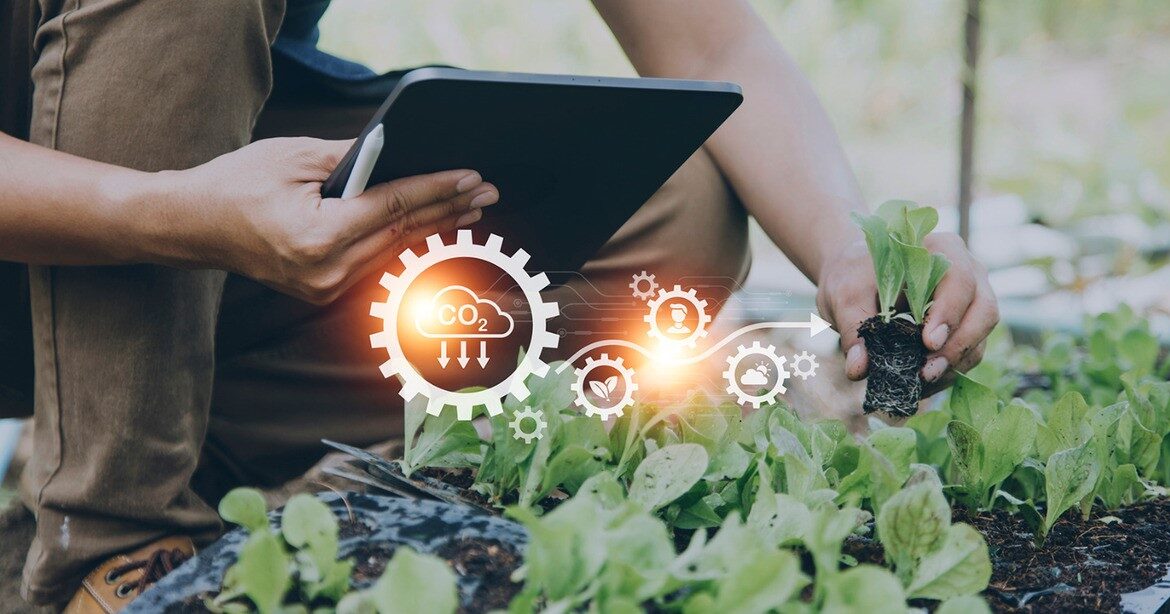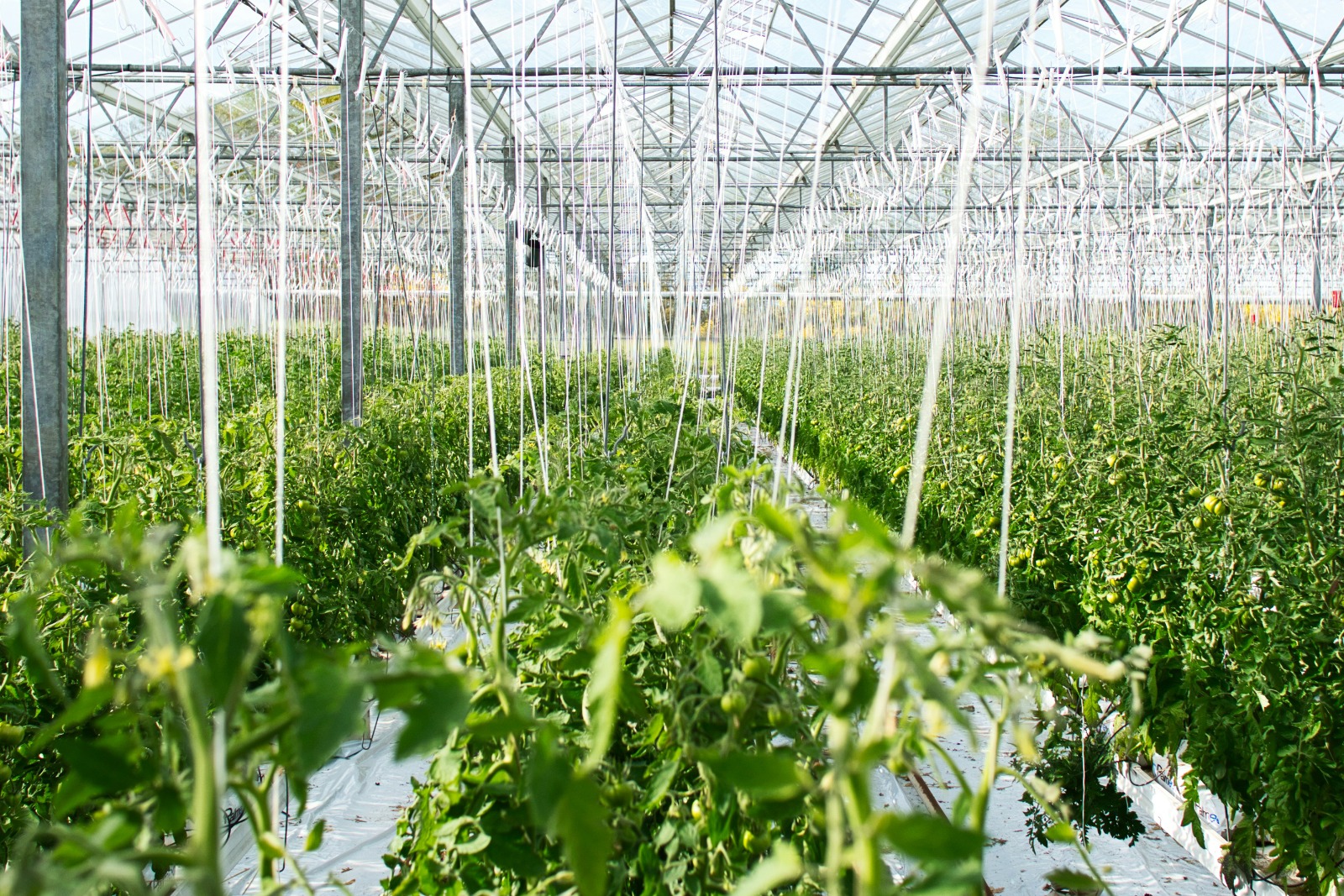From Farm to Fork
The UAE’s F&B Tech Revolution for Sustainability and Efficiency

The arid landscape of the United Arab Emirates (UAE) may appear far removed from the cutting-edge world of Silicon Valley, but beneath the surface lies a burgeoning technological revolution. The nation’s food and beverage (F&B) industry, long a cornerstone of its economy, is undergoing a profound transformation driven by the transformative power of technology. By strategically integrating innovation at every stage – from seed sowing to final dish presentation – the UAE charts a course toward a more sustainable, efficient, and ultimately, delicious future for its F&B sector.
Bridging the Skills Gap: Cultivating a Tech-Savvy Workforce
A key challenge identified at the 2022 Future Food Forum panel discussion, moderated by Johan Burger, Executive Education Manager at UAE University, was the need to address the widening skills gap within the F&B industry. The rapid adoption of technologies, from AI-powered precision agriculture to smart factory operations, necessitates a workforce equipped with the skills to manage these advancements. As Ahmed Saeed Belyouha, Chairman of Emirates Macaroni Factory, aptly stated, “We require fostering a generation of ‘agri-tech’ talent capable of bridging the gap between traditional farming practices and cutting-edge technologies.”
The UAE is taking decisive steps to address this challenge. Universities are revamping their curricula to incorporate robotics, data analytics, and blockchain into their F&B programs. Government initiatives provide incubation centres and funding for tech-driven startups in the agricultural sector. This concerted effort paves the way for a future where Emirati youth become not only consumers of technology but also active participants in shaping the F&B landscape of tomorrow.
From Sand to Silicon: Precision Agriculture Takes Root in the Desert
The arid climate has historically posed significant challenges for traditional agriculture in the UAE. However, technology is changing the game. As Moin Anwar, Trade & Investment Commissioner for New South Wales Government Australia, emphasises, “Precision agriculture is transforming the way we farm in the UAE. By utilising sensors and AI to optimise water usage and nutrient delivery, we are not only maximising yields but also minimising environmental impact.”
Imagine fields dotted with drones collecting real-time data on soil moisture and crop health. This data feeds into AI algorithms that tailor irrigation and fertilisation to the specific needs of each plant, resulting in significant water savings and reduced waste. Companies like Madar Farms are even pushing boundaries by utilising vertical farming techniques, defying the limitations of the desert.
Beyond Borders: Collaboration Fuels Innovation
The UAE recognizes that the journey towards a sustainable and efficient F&B industry is not a solitary one. Collaboration, both within the region and beyond, is key to unlocking the full potential of technology. As Shaker Zainal, Chief SME Officer at Emirates Development Bank, highlights, “Things are changing slowly. We have developed products to encourage banks to lend to priority sectors like food security, manufacturers, healthcare, advanced technologies, and infrastructure.”
These collaborative efforts extend beyond traditional banking. Zainal explains, “We get into syndication and club deals with commercial banks to encourage them to support these sectors, offering grace periods of up to two years for manufacturers and downstream businesses, and even 15-year term loans for farms and livestock to support them through break-even and scaling up.”
From Farm to Fork: A Seamlessly Connected Journey
Technology is not just transforming how food is grown but also how it travels from farm to fork. Blockchain technology, lauded for its “unwavering transparency and traceability,” is revolutionising the supply chain. Every step of the journey, from the moment a seed is planted to the final product delivery, is recorded on a secure, tamper-proof ledger. This not only ensures food safety and quality but also empowers consumers with the knowledge of where their food comes from and how it was produced.
Imagine scanning a QR code on your supermarket apple and instantly accessing information about its origin, the farm it was grown on, and even the water and fertiliser used in its cultivation. This level of transparency builds trust and fosters a sense of connection between consumers and producers, strengthening the fabric of the F&B ecosystem.
The Road Ahead: Navigating Challenges and Capitalising on Opportunities
Embracing technological transformation is not without its challenges. Concerns about job displacement due to automation, ethical considerations surrounding data privacy and AI control, and the need for substantial infrastructure upgrades are critical hurdles that require thoughtful solutions. However, the 2022 Future Food Forum panel discussion resonated with optimism.
The challenges are undoubtedly significant, but the opportunities offered by this technological revolution are boundless. By prioritising collaboration, investing in education and upskilling initiatives, and implementing ethical frameworks for data governance, the UAE can harness the power of technology to build a thriving, sustainable F&B industry for generations to come.
Moving Forward: Embracing a Collective Responsibility
Building a robust, tech-driven F&B ecosystem in the UAE is not solely the responsibility of governments and industry leaders. It requires a collective effort from individuals, consumers, and the broader community. Here are some ways you can be a part of this exciting transformation:
- Support local tech-driven F&B ventures: By choosing products from UAE farms utilising precision agriculture or local startups delivering fresh produce through smart logistics, you directly contribute to the success of this movement.
- Demand transparency and sustainability: Ask questions about the origin and production processes of your food. Encourage supermarkets and restaurants to embrace blockchain technology and provide detailed information about their products and environmental practices.
- Stay informed and engaged: Participate in conversations about food technology, attend workshops and events, and learn about the latest advancements in the field. Your informed voice can shape the future of the industry.
- Advocate for future relevant education: Champion a vision for education that prepares the youth for the challenges and opportunities of the future. Encourage exploration of innovative fields and emerging industries, fostering a mindset that embraces adaptability, creativity, and critical thinking.
The Final Bite: A Future Nourished by Innovation
The UAE’s embrace of technology in the F&B industry is not just about efficiency and sustainability; it’s about reimagining the entire food system. It’s about connecting farmers to consumers in meaningful ways, empowering individuals to make informed choices, and nurturing a future where delicious, nutritious food is available to all. By joining this collective effort, we can ensure that the future of food in the UAE is not just technologically advanced, but also equitable, sustainable, and ultimately, more delicious than ever before.
This is just the beginning of the story. As technology continues to evolve and the UAE pushes the boundaries of innovation, the journey from farm to fork will become even more fascinating and impactful. So, grab your fork, stay curious, and get ready to savour the fruits of this technological revolution.






